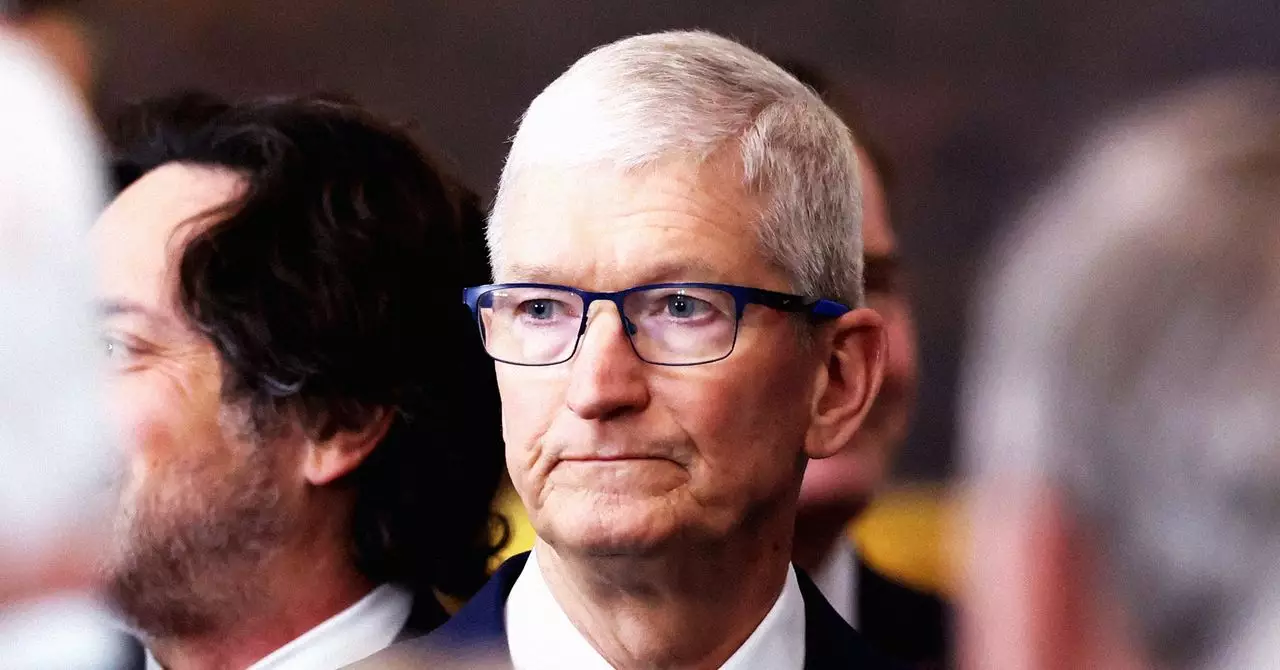In a startling turn of events, the recent ruling from Judge Yvonne Gonzalez Rogers against Apple not only underscores the tech giant’s questionable business practices but also serves as a crucial reminder of the legal system’s role in holding companies accountable. The judge’s assertion that Apple “willfully chose not to comply” with a court order reveals a troubling disregard for judicial authority—a sentiment echoed by many who observe the perils of unchecked corporate power. The referral for potential criminal contempt proceedings against Apple signifies a breaking point, where compliance with established laws is no longer optional, particularly for firms wielding immense market influence.
Epic Games vs. Apple: The Battle of Titans
The backdrop of this courtroom drama lies in a fierce legal battle initiated by Epic Games, the developer of popular game Fortnite. The conflict arose when Epic took issue with Apple’s restrictive App Store policies, which critics argue create an “anticompetitive” environment stifling developer innovation and limiting consumers’ choices. The 30 percent commission Apple extracts from in-app purchases is a focal point of contention; many developers claim this fee is exorbitant and unsustainable. Although Judge Gonzalez Rogers ruled largely in Apple’s favor in 2021, she also mandated that Apple must enable developers to promote alternative purchasing methods outside its App Store—an attempt at fostering a fairer competitive landscape.
However, Apple’s recent actions—such as reducing its commission to 27 percent while simultaneously erecting new barriers to external purchases—paint a picture of a company intent on subverting the spirit of the ruling. By framing its compliance in a way that continues to favor its established revenue models, Apple demonstrates a troubling tendency to manipulate legal outcomes to its advantage, a tactic that raises ethical questions about corporate governance and responsibility.
The Allegations of Deception
As part of the court’s findings, Judge Gonzalez Rogers did not hold back in her scathing assessment of Apple’s internal communications and executive testimony. Allegations that Apple executives intentionally misled the court are deeply concerning. The judge’s contention that Alex Roman, Apple’s vice president of finance, lied during his testimony reflects a broader culture within some corporations where manipulation of facts to suit corporate interests is normalized. The stark contrast between initial courtroom statements and internal documents painted a picture of a company keenly aware of its anticompetitive practices yet choosing to ignore the consequences.
This situation invites scrutiny not only concerning Apple’s ethics but also the integrity of corporate leadership. If a company that positions itself as a paragon of innovation and consumer-centricity can engage in deceptive practices to maintain its profit margins, what does that say about the future of business ethics in the tech industry?
Corporate Governance in the Spotlight
The ongoing scrutiny and the public’s reaction to Apple’s actions underscore a vital question about corporate governance: who is truly in charge, and do they genuinely act in the best interests of their users? Judge Gonzalez Rogers’ findings indicate a concerning disconnect between Apple’s executive decisions and profitability strategies that prioritize shareholder returns over ethical compliance. By allegedly disregarding an explicit court order, Apple has not just risked legal repercussions; it has threatened its reputation and relationship with both consumers and developers, who are beginning to lose faith in its commitment to fair business practices.
Ultimately, the implications of this ruling could extend far beyond this case. It might pave the way for more stringent regulations and a reassessment of what constitutes fair business conduct in the tech sector. Apple’s decision to challenge judicial authority could catalyze a shift in how corporations operate, revealing a critical need for oversight that is transparent and accountable in promoting healthy, competitive markets.
A Call for Real Change
As the case unfolds, one can only hope that the outcome leads to genuine structural changes within Apple and perhaps the broader tech ecosystem. The corporate world must be prepared for a landscape where compliance and ethical practices take precedence over profit. The time has come for businesses to prioritize values alongside revenue, ensuring that their success does not come at the cost of integrity or consumer trust.

